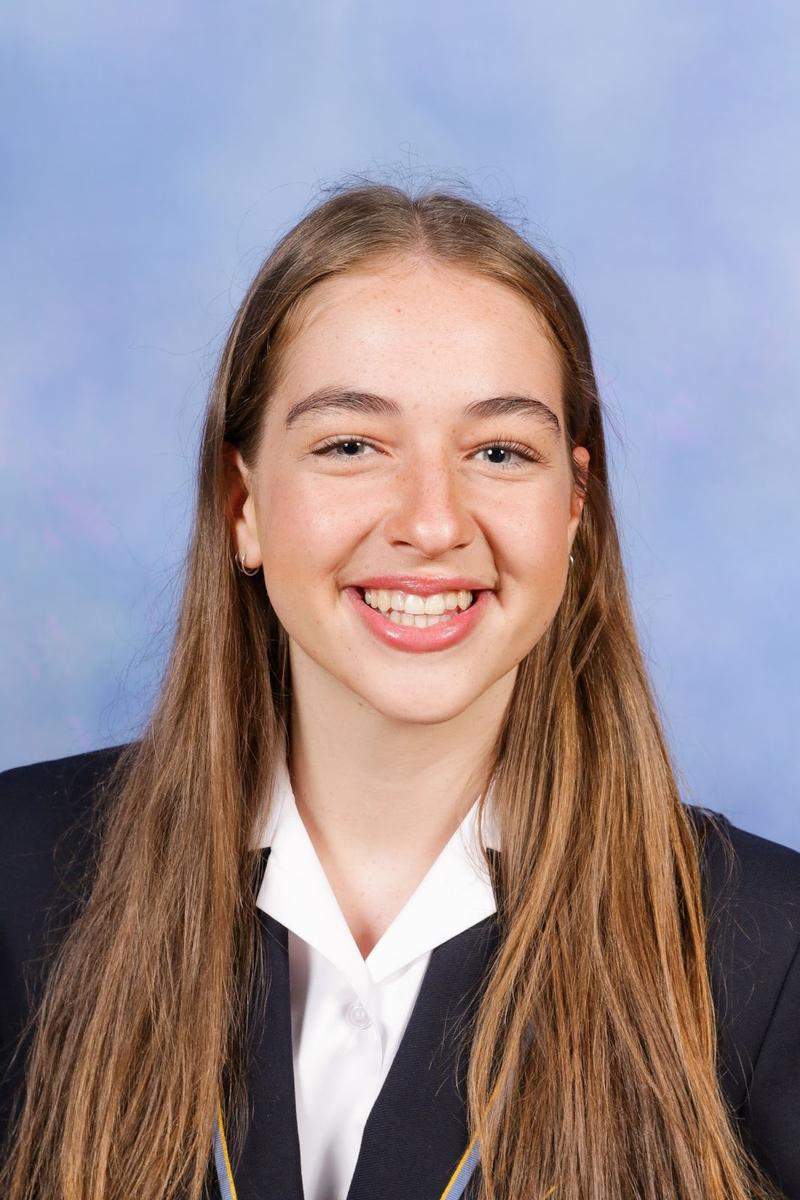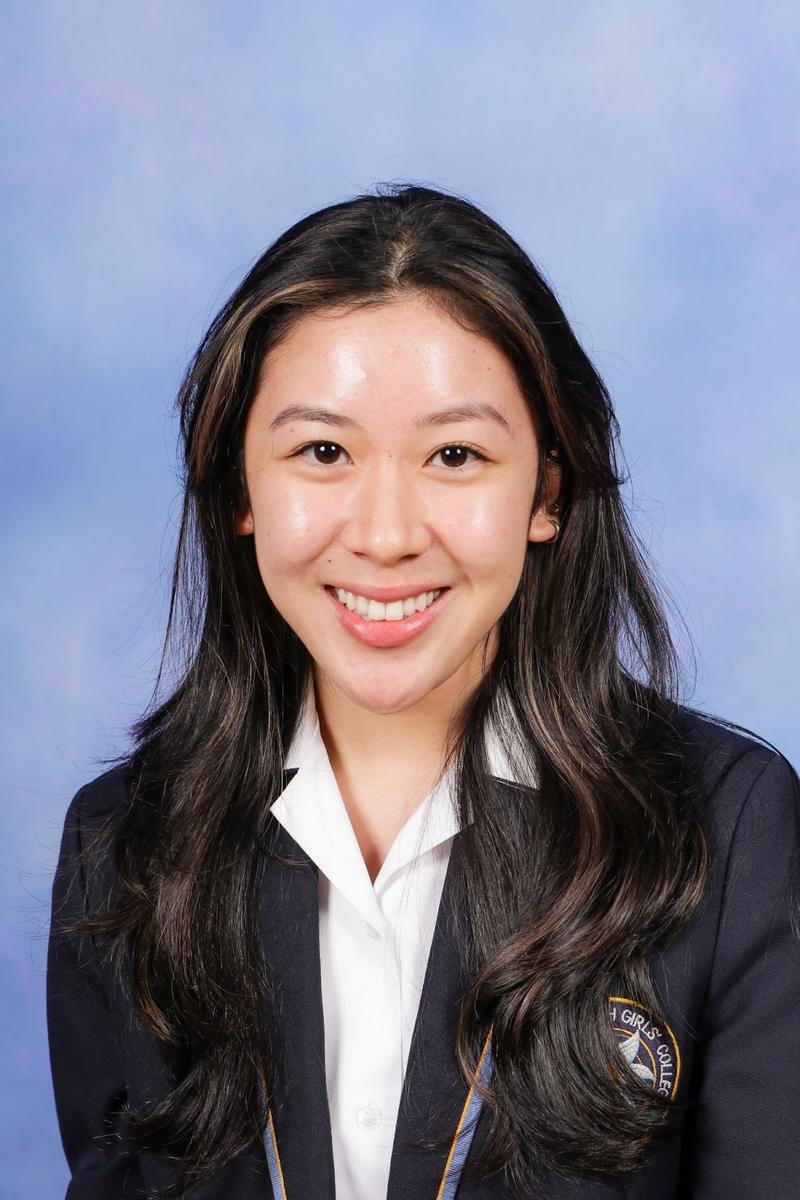Science

- Biology
- Chemistry
- Physics
- Psychology
When selecting your Science studies for VCE you need to consider the following points:
- VCE Science studies continue and build on the work you have done in the previous years of schooling. You should have a sound understanding of the science involved in the VCE subject you are electing to study. For example, if you choose to take on VCE Biology in Year 11, you should have enjoyed and had success with your Biology units in Year 9 / 10 Science.
- Well-established habits of regular study in the subject provide the basis for selection of Science subjects at VCE.
- You need to have a strong desire to further your knowledge in Science, thus complementing your studies in other relevant areas such as mathematics.
- There are no prerequisites for entry into Units 1 and 2 however students must undertake Unit 3 prior to undertaking Unit 4. Students electing a Unit 3-4 course in Chemistry or Physics must have completed Units 1 and/or 2 in the relevant study.
- Students electing a Unit 3-4 course in Biology or Psychology without Units 1 and/or 2 should expect to undertake additional preparation as prescribed by the teacher. It is always strongly recommended however, to study Units 1 and 2 prior to taking on Units 3 and 4 in these courses of study.
Biology
Subject Entry Information | Complementary Subjects | Types of Assessment |
|---|---|---|
|
|
|
Watch the video:
Kate Lavers- I chose to study VCE Biology because I was always interested in the more biological aspects explored throughout junior science studies. Biology was also a subject that would help me in my studies when at university (as it is apart of the course I would like to do). I enjoy studying biology because it is a very unique subject, as you learn to explore the complexity of living things and how they interact with each other and the environment. Biology has also a very broad range of topics that is covered throughout VCE. My advice when choosing to study biology in VCE, would be whether you have enough time in terms of your other subjects, to put a lot of effort into studying biology, as it can be very time consuming.
Description
The study of Biology explores the diversity of life as it has evolved and changed over time, and considers how living organisms function and interact. It explores the processes of life, from the molecular world of the cell to that of the whole organism, and examines how life forms maintain and ensure their continuity. Students study contemporary research, models and theories to understand how knowledge in biology has developed and how this knowledge continues to change in response to new evidence and discoveries. An understanding of the complexities and diversity of biology provides students with the opportunity to appreciate the interconnectedness of concepts and areas both within biology, and across biology and the other sciences.
Unit 1: How do organisms regulate their functions?
In this unit students examine the cell as the structural and functional unit of life, from the single celled to the multicellular organism, including the requirements for sustaining cellular processes. Students focus on cell growth, replacement and death and the role of stem cells in differentiation, specialisation and renewal of cells. They explore how systems function through cell specialisation in vascular plants and animals, and consider the role homeostatic mechanisms play in maintaining an animal’s internal environment.
Unit 2: How does inheritance impact on diversity?
In this unit students explore reproduction and the transmission of biological information from generation to generation and the impact this has on species diversity. They apply their understanding of chromosomes to explain the process of meiosis. Students consider how the relationship between genes, and the environment and epigenetic factors influence phenotypic expression. They explain the inheritance of characteristics, analyse patterns of inheritance, interpret pedigree charts and predict outcomes of genetic crosses.
Unit 3: How do cells maintain life?
In this unit students investigate the workings of the cell from several perspectives. They explore the relationship between nucleic acids and proteins as key molecules in cellular processes. Students analyse the structure and function of nucleic acids as information molecules, gene structure and expression in prokaryotic and eukaryotic cells and proteins as a diverse group of functional molecules. They examine the biological consequences of manipulating the DNA molecule and applying biotechnologies.
Unit 4: How does life change and respond to challenges ?
In this unit students consider the continual change and challenges to which life on Earth has been, and continues to be, subjected to. They study the human immune system and the interactions between its components to provide immunity to a specific pathogen. Students consider how the application of biological knowledge can be used to respond to bioethical issues and challenges related to disease.
Assessment:
Percentage contributions to the study score in VCE Biology for Units 3 and 4 are as follows:
- Unit 3 School-assessed Coursework: 20%
- Unit 4 School-assessed Coursework: 30%
- End-of-year examination: 50%
Chemistry
Subject Entry Information | Complementary Subjects | Types of Assessment |
|---|---|---|
|
|
|
Watch the video:
Bridget Munro - As a passionate science student, this subject was closely aligned with my interests and it was also a prerequisite for a number of university courses I was looking at. It is interesting the way that every concept is interconnected, and the more you learn in this subject, the more your knowledge builds and builds - there are also so many connections to everyday life which makes the content both fascinating and relevant. The jump from Year 10 science to Units 1/2 chemistry can be a bit abrupt as concepts really do become a lot more challenging. I recommend utilise your teacher and all the advice, wisdom and insight they have to give you! It is also really important, if you are looking to excel, to do extra reading and research on the content covered in class as chemistry is one of the most competitive subjects, so it is important to give yourself every advantage.
Description
The study of VCE Chemistry involves investigating and analysing the composition and behaviour of matter, and the chemical processes involved in producing useful materials for society in ways that minimise adverse effects on human health and the environment. Chemistry underpins the generation of energy for use in homes and industry, the maintenance of clean air and water, the production of food, medicines and new materials, and the treatment of wastes.
Unit 1: How can the diversity of materials be explained?
The development and use of materials for specific purposes is an important human endeavour. In this unit students investigate the chemical structures and properties of a range of materials, including covalent compounds, metals, ionic compounds and polymers. They are introduced to ways that chemical quantities are measured. They consider how manufacturing innovations lead to more sustainable products being produced for society through the use of renewable raw materials and a transition from a linear economy towards a circular economy.
Unit 2: How do chemical reactions shape the natural world?
Society is dependent on the work of chemists to analyse the materials and products in everyday use. In this unit students analyse and compare different substances dissolved in water and the gases that may be produced in chemical reactions. They explore applications of acid-base and redox reactions in society.
Students conduct practical investigations involving the specific heat capacity of water, acid-base and redox reactions, solubility, molar volume of a gas, volumetric analysis, and the use of a calibration curve.
Unit 3 : How can design and innovation help to optimise chemical processes?
The global demand for energy and materials is increasing with world population growth. In this unit students investigate the chemical production of energy and materials. They explore how innovation, design and sustainability principles and concepts can be applied to produce energy and materials while minimising possible harmful effects of production on human health and the environment.
Students analyse and compare different fuels as energy sources for society, with reference to the energy transformations and chemical reactions involved, energy efficiencies, environmental impacts and potential applications. They explore food in the context of supplying energy in living systems. The purpose, design and operating principles of galvanic cells, fuel cells, rechargeable cells and electrolytic cells are considered when evaluating their suitability for supplying society’s needs for energy and materials. They evaluate chemical processes with reference to factors that influence their reaction rates and extent. They investigate how the rate of a reaction can be controlled so that it occurs at the optimum rate while avoiding unwanted side reactions and by-products. Students conduct practical investigations involving thermochemistry, redox reactions, electrochemical cells, reaction rates and equilibrium systems.
Unit 4: How are carbon-based compounds designed for purpose?
Carbon is the basis not only of the structure of living tissues but is also found in fuels, foods, medicines, polymers and many other materials that we use in everyday life. In this unit students investigate the structures and reactions of carbon-based organic compounds, including considering how green chemistry principles are applied in the production of synthetic organic compounds. They study the metabolism of food and the action of medicines in the body. They explore how laboratory analysis and various instrumentation techniques can be applied to analyse organic compounds in order to identify them and to ensure product purity.
Assessment:
Percentage contributions to the study score in VCE Chemistry for Units 3 and 4 are as follows:
- Unit 3 School-assessed Coursework: 20%
- Unit 4 School-assessed Coursework: 30%
- End-of-year examination: 50%
Physics
Subject Entry Information | Complementary Subjects | Types of Assessment |
|---|---|---|
|
|
|
Watch the video:
Arumalla Neha- I chose Physics because I liked the movie ‘The Theory of Everything’ and felt inspired by the life and work of Stephen Hawking. When learning about the universe it sometimes can be difficult to understand certain concepts. This subject has a lot of maths intertwined in the topic so you need to have talent there. Believe in yourself, I think physics is a great subject for curious minds and my advice would be to keep an open mind. Stay on top of homework and study and you will do well.
Description
The study of VCE Physics involves investigating, understanding and explaining the behaviour of physical phenomena in the Universe. Models, including mathematical models, are used to explore, simplify and predict how physical systems behave at varying scales from the very small (quantum and particle physics) through to the very large (astronomy and cosmology). Beginning with classical ideas and considering their limitations, and then being introduced to more modern explanations of the world, provides a novel lens through which students experience the world around them, drawing on their natural curiosity and wonder.
Unit 1: How is energy useful to society?
In this unit students examine some of the fundamental ideas and models used by physicists in an attempt to understand and explain energy. Models used to understand light, thermal energy, radioactivity, nuclear processes and electricity are explored. Students apply these physics ideas to contemporary societal issues: communication, climate change and global warming, medical treatment, electrical home safety and Australian energy needs.
Unit 2: How does physics help us to understand the world?
In this unit students explore the power of experiments in developing models and theories. They investigate a variety of phenomena by making their own observations and generating questions, which in turn lead to experiments.
In Area of Study 1, students investigate the ways in which forces are involved both in moving objects and in keeping objects stationary and apply these concepts to a chosen case study of motion.
In Area of Study 2, students choose one of eighteen options related to climate science, nuclear energy, flight, structural engineering, biomechanics, medical physics, bioelectricity, optics, photography, music, sports science, electronics, astrophysics, astrobiology, Australian traditional artefacts and techniques, particle physics, cosmology and local physics research. The selection of an option enables students to pursue an area of interest through an investigation and using physics to justify a stance, response or solution to a contemporary societal issue or application related to the option.
Unit 3: How do fields explain motion and electricity?
In this unit students use Newton’s laws to investigate motion in one and two dimensions. They explore the concept of the field as a model used by physicists to explain observations of motion of objects not in apparent contact. Students compare and contrast three fundamental fields – gravitational, magnetic and electric – and how they relate to one another. They consider the importance of the field to the motion of particles within the field. Students examine the production of electricity and its delivery to homes. They explore fields in relation to the transmission of electricity over large distances and in the design and operation of particle accelerators.
Unit 4: How have creative ideas and investigation revolutionised thinking in physics?
A complex interplay exists between theory and experiment in generating models to explain natural phenomena. Ideas that attempt to explain how the Universe works have changed over time, with some experiments and ways of thinking having had significant impact on the understanding of the nature of light, matter and energy. Wave theory, classically used to explain light, has proved limited as quantum physics is utilised to explain particle-like properties of light revealed by experiments. Light and matter, which initially seem to be quite different, on very small scales have been observed as having similar properties. At speeds approaching the speed of light, matter is observed differently from different frames of reference. Matter and energy, once quite distinct, become almost synonymous.
Assessment
Percentage contributions to the study score in VCE Physics for Units 3 and 4 are as follows:
- Unit 3 School-assessed Coursework: 30%
- Unit 4 School-assessed Coursework: 20%
- End-of-year examination: 50%
Psychology
Subject Entry Information | Complementary Subjects | Types of Assessment |
|---|---|---|
|
|
|
Watch the video:
Zoe Nasser- I was not originally going to study a 3/4 Unit subject in Year 11, but someone said it was good so I did what my friend did because my application was late. I was also considering biology, but not much thought went into it, I liked science in Year 10 and thought it would be fun. I initially thought it would be about reading peoples minds, it was not about that, but nevertheless, it was enjoyable because I was interested in the ways that the mind works and how we express ourselves. The content was logical and the school had more than enough resources. I was able to apply what I learnt in class to everyday life. It is quite a content heavy subject, but you are exposed to the concepts enough that it is not too difficult to commit it to memory by the end of the year. Have fun and your effort pays off in Psychology.
Description
Psychology is a multifaceted discipline that seeks to describe, explain, understand and predict human behaviour and mental processes. It includes many sub-fields of study that explore and seek to better understand how individuals, groups, communities and societies think, feel and act.
There are many different approaches to the study of psychology. VCE Psychology applies a biopsychosocial approach to the systematic study of mental processes and behaviour. Within this approach, different perspectives, models and theories are considered. Each of these has strengths and weaknesses, yet considered together they allow students to develop their understanding of human behaviour and mental processes and the interrelated nature of biological, psychological and social factors. Biological perspectives focus on how physiology influences individuals through exploring concepts such as hereditary and environmental factors, nervous system functioning and the role of internal biological mechanisms. Psychological perspectives consider the diverse range of cognitions, emotions and behaviours that influence individuals. Within the social perspective, factors such as cultural considerations, environmental influences, social support and socioeconomic status are explored. The biopsychosocial approach can be applied to understand a variety of mental processes and behaviours.
Unit 1: How are behaviour and mental processes shaped?
In this unit students examine the complex nature of psychological development, including situations where psychological development may not occur as expected. Students examine the contribution that classical and contemporary knowledge from Western and non-Western societies, including Aboriginal and Torres Strait Islander peoples, has made to an understanding of psychological development and to the development of psychological models and theories used to predict and explain the development of thoughts, emotions and behaviours. They investigate the structure and functioning of the human brain and the role it plays in mental processes and behaviour and explore brain plasticity and the influence that brain damage may have on a person’s psychological functioning.
Unit 2: How do internal and external factors influence behaviour and mental processes?
In this unit students evaluate the role social cognition plays in a person’s attitudes, perception of themselves and relationships with others. Students explore a variety of factors and contexts that can influence the behaviour of individuals and groups, recognising that different cultural groups have different experiences and values. Students are encouraged to consider Aboriginal and Torres Strait Islander people’s experiences within Australian society and how these experiences may affect psychological functioning.
Unit 3: How does experience affect behaviour and mental processes?
In this unit students investigate the contribution that classical and contemporary research has made to the understanding of the functioning of the nervous system and to the understanding of biological, psychological and social factors that influence learning and memory.
Students investigate how the human nervous system enables a person to interact with the world around them. They explore how stress may affect a person’s psychological functioning and consider stress as a psychobiological process, including emerging research into the relationship between the gut and the brain in psychological functioning.
Unit 4: How is mental wellbeing supported and maintained?
In this unit students explore the demand for sleep and the influences of sleep on mental wellbeing. They consider the biological mechanisms that regulate sleep and the relationship between rapid eye movement (REM) and non-rapid eye movement (NREM) sleep across the life span. They also study the impact that changes to a person’s sleep-wake cycle and sleep hygiene have on a person’s psychological functioning and consider the contribution that classical and contemporary research has made to the understanding of sleep.
Assessment
Percentage contributions to the study score in VCE Psychology for Units 3 and 4 are as follows:
- Unit 3 School-assessed Coursework: 20%
- Unit 4 School-assessed Coursework: 30%
- End-of-year examination: 50%



